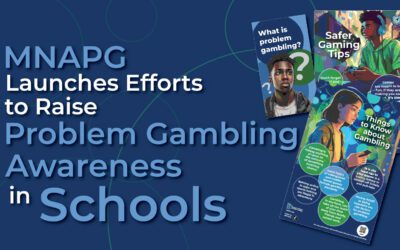Youth Gambling
Youth gambling is a significant risk factor for gambling addiction later in life. Fortunately, there are signs and tips to alert parents if their child is gambling.
SIGNS YOUR CHILD MAY HAVE A PROBLEM WITH GAMBLING
- Are you concerned about the amount of time your child spends on screens or devices or how often these activities distract from family activities and sleep?
- Do you know what apps or sites your child is visiting? Unregulated video games and gambling are easy to find and age verification is easy to forge.
- Are you aware of bets your child is making with friends or classmates?
- Has your child lost interest in activities he or she once enjoyed?
- Have your child’s grades slipped or does your child miss school or classes?
- Does your child work but never seem to have money?
- Does your child have more money or unexplained money?
- Do you suspect your child might be stealing?
- Does your child have an intense reaction during sporting events when one team is either losing or winning?
- Has your child become secretive?
- Does your child lie about money or about gambling activities? (Source: Gam-Anon International Service Office, Inc.)
If you answer yes to several of these questions, start a conversation about gambling with your child.
WHAT CAN I DO AS A PARENT/ TRUSTED ADULT?
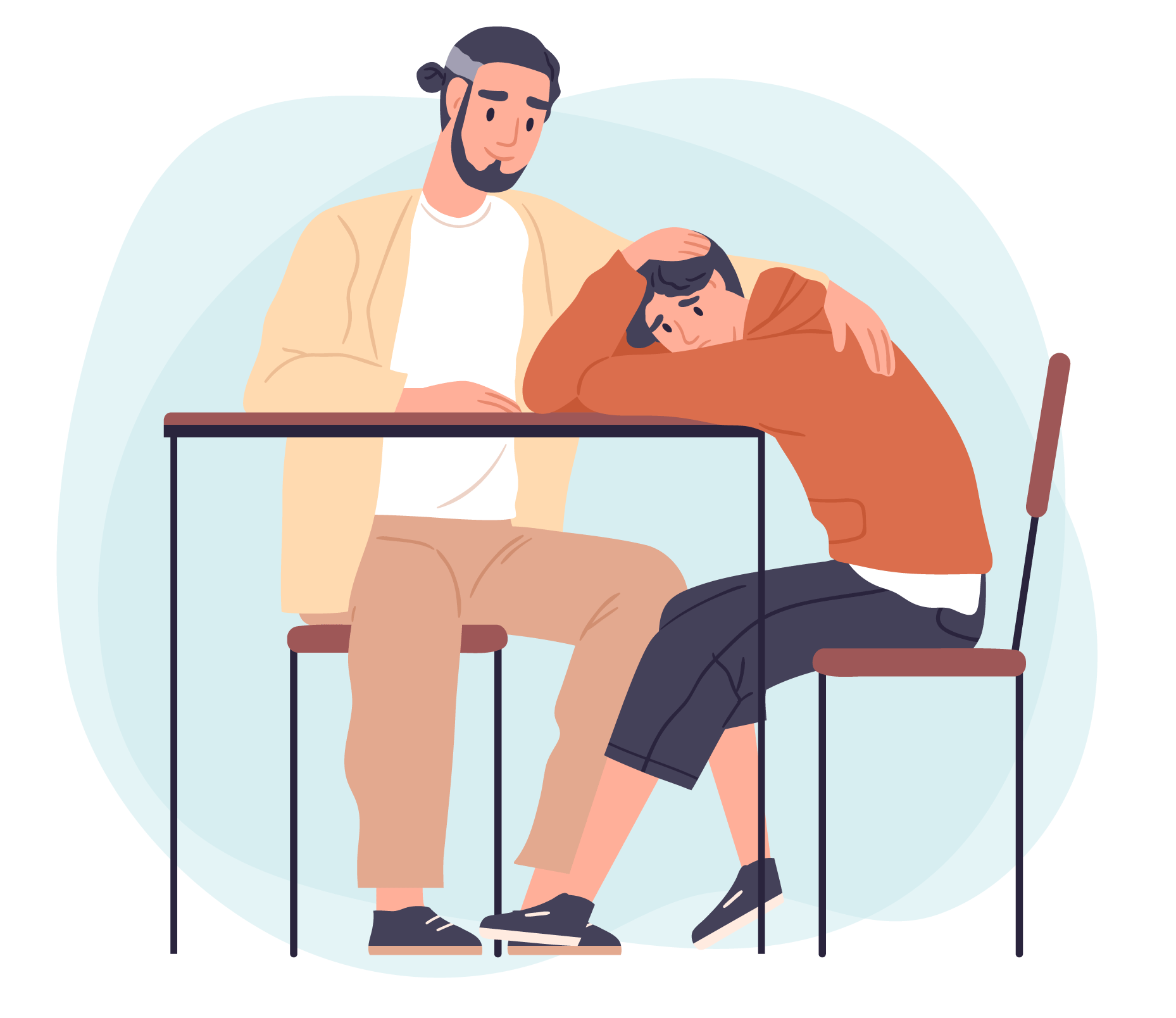 Gambling is not a safe alternative to alcohol, drugs or cigarettes. Gambling can become a serious addiction, and its effects can be every bit as devastating (both to the gambler and their family) as drugs or alcohol. What’s more, gambling is often a “gateway” to other high-risk behaviors.
Gambling is not a safe alternative to alcohol, drugs or cigarettes. Gambling can become a serious addiction, and its effects can be every bit as devastating (both to the gambler and their family) as drugs or alcohol. What’s more, gambling is often a “gateway” to other high-risk behaviors.
Foremost, don’t engage your children in gambling activities. Don’t reward them with gambling-related items such as lottery tickets or poker chips.
- Begin a conversation with your child when they’re not preoccupied and, if possible, when it can be naturally raised in a conversation.
- Listen to what they say about gambling and encourage an ongoing discussion.
- As with any activity you may have concerns with, let them know the potential harms and the differences between lower risk play and risky gambling.
- State your own position simply and clearly.
- Teach them about the odds and “the house always wins in the long run.”
- If you think they may be gambling online, consider uploading an online blocking tool like Gamban or Betblocker.
With the right information and help, young people and parents can overcome gambling problems. Remember, children and adolescents tend to model their behavior based on behaviors of others, whether parents, friends or role models.
Source: Partners in Prevention, International Centre for Youth Gambling and Problems & High-Risk Behaviors. www.youthgambling.com
QUICK FACTS ON YOUTH PROBLEM GAMBLING
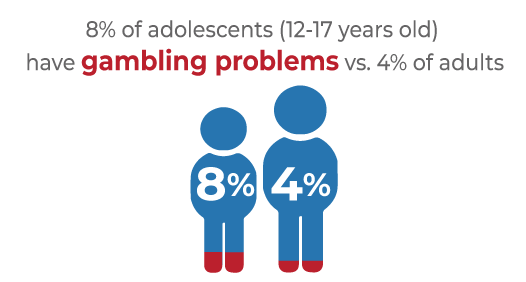
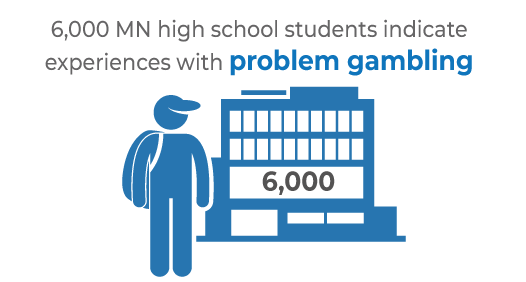
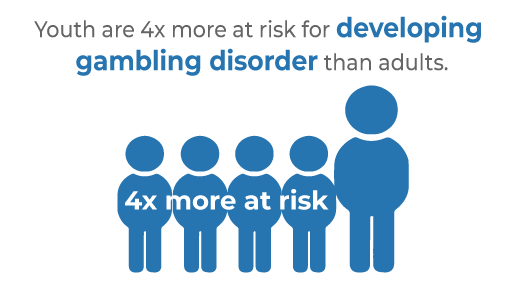
Like many adults, teens may find gambling a fun social activity to do with friends or family. It’s a way to be competitive or escape from being bored. It can also be about winning money. None of these are necessarily a reason for concern, but it’s important to be aware of the potential risk factors that could impact your child’s response to gambling now and into their future. Gambling is not a risk-free activity and can potentially result in addiction.
Gambling isn’t just about going to a casino, buying a scratch off ticket or betting on the outcome a football game. “Gambling” (or “betting”) is any kind of wager or bet where someone can lose something of value. It can be cash, credit, items (phones, clothes, shoes, etc.), favors (chores, doing homework, etc.), dares or anything with value to the person risking it.
Unfortunately, problem gambling prevention is not available in our schools, yet the most recent Minnesota Student Survey (2022) indicates over 6,000 high school students self-identify as having a problem with gambling. It’s an addiction that is easy to hide and we’ve normalized gambling to such a degree that many don’t realize it can be an addiction. That’s why it’s important to keep up with your children’s activities, notice when behaviors change or there is an increasing need to access money. As gambling access expands, we want to equip parents with the available information and resources to help you make informed decisions about your child’s interaction with gambling.
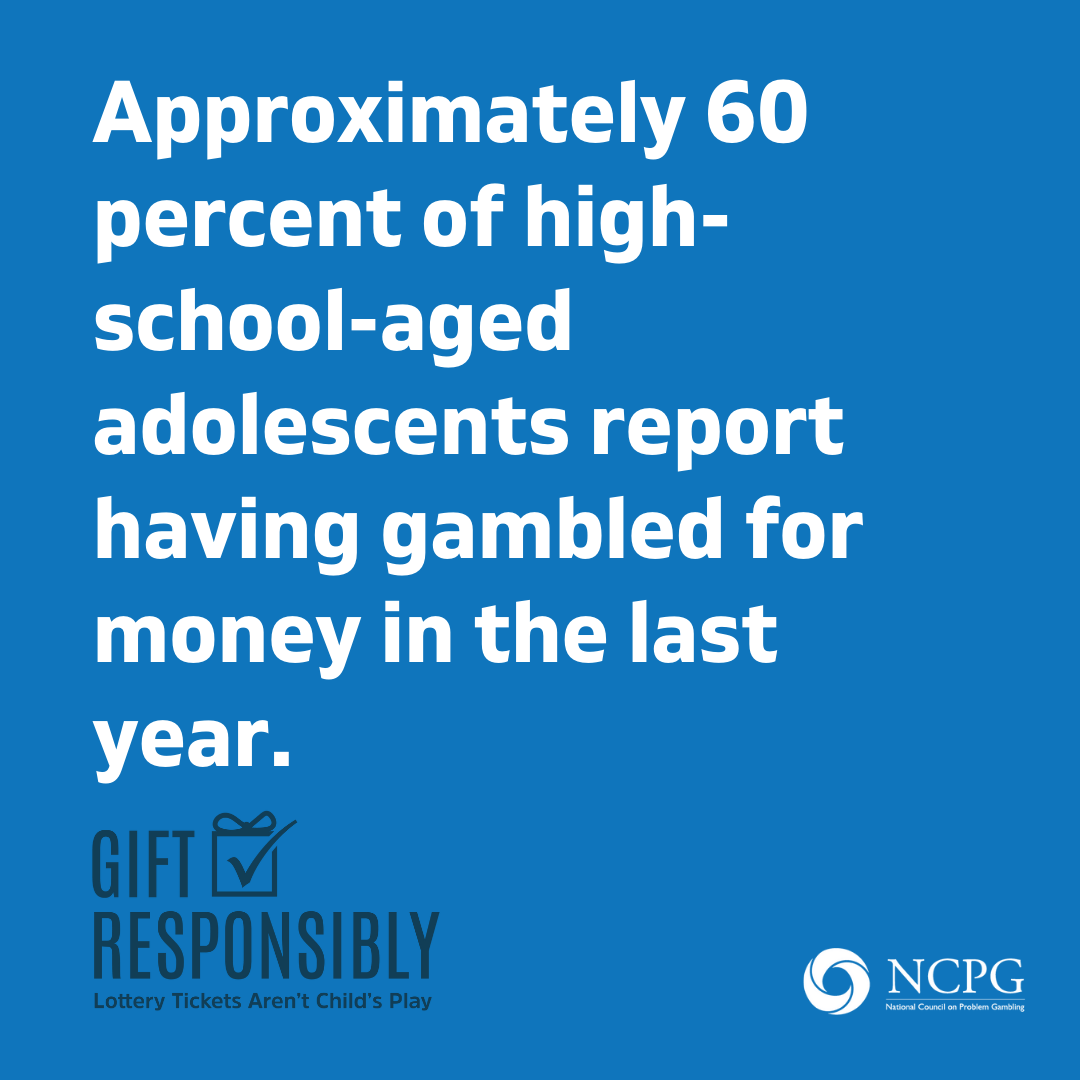
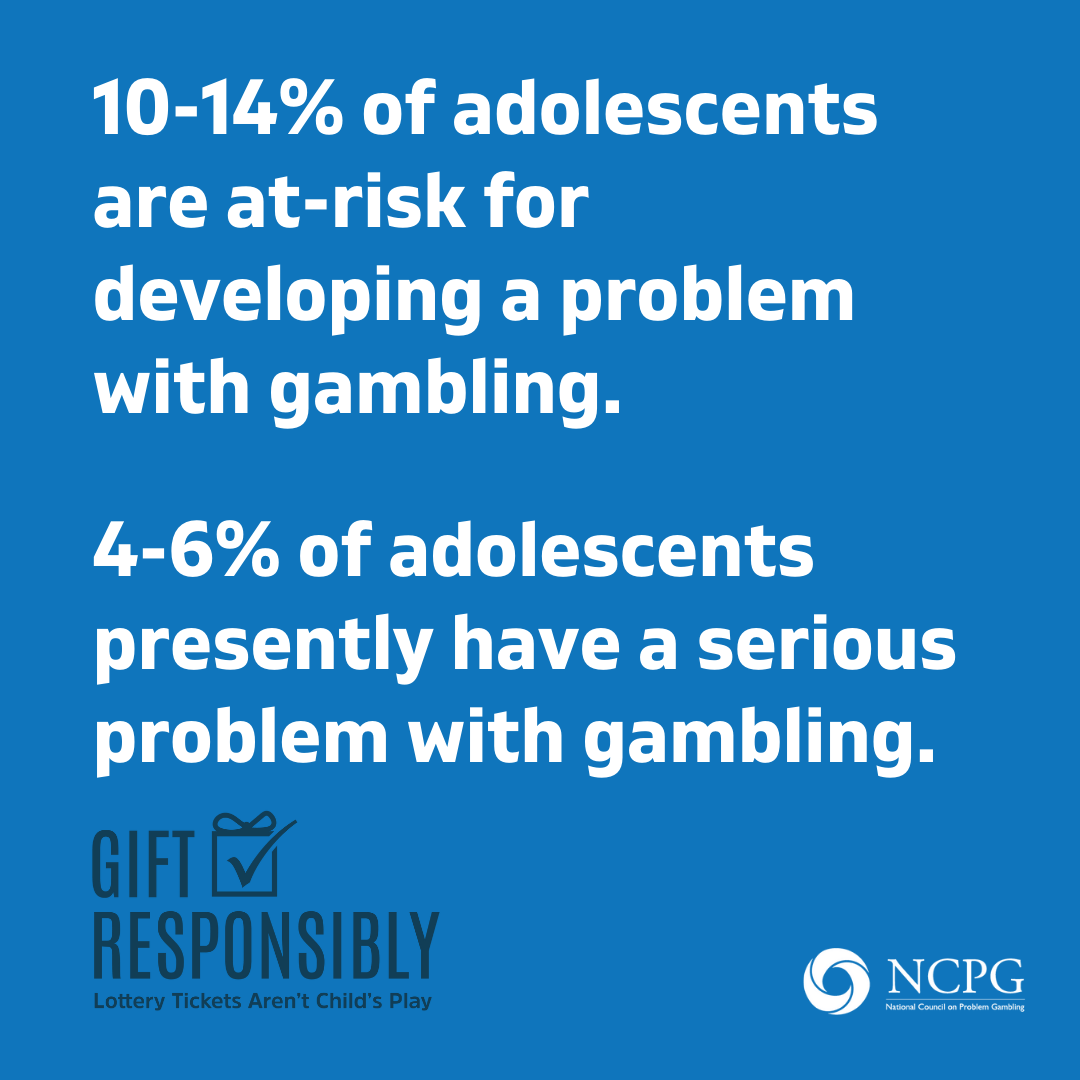
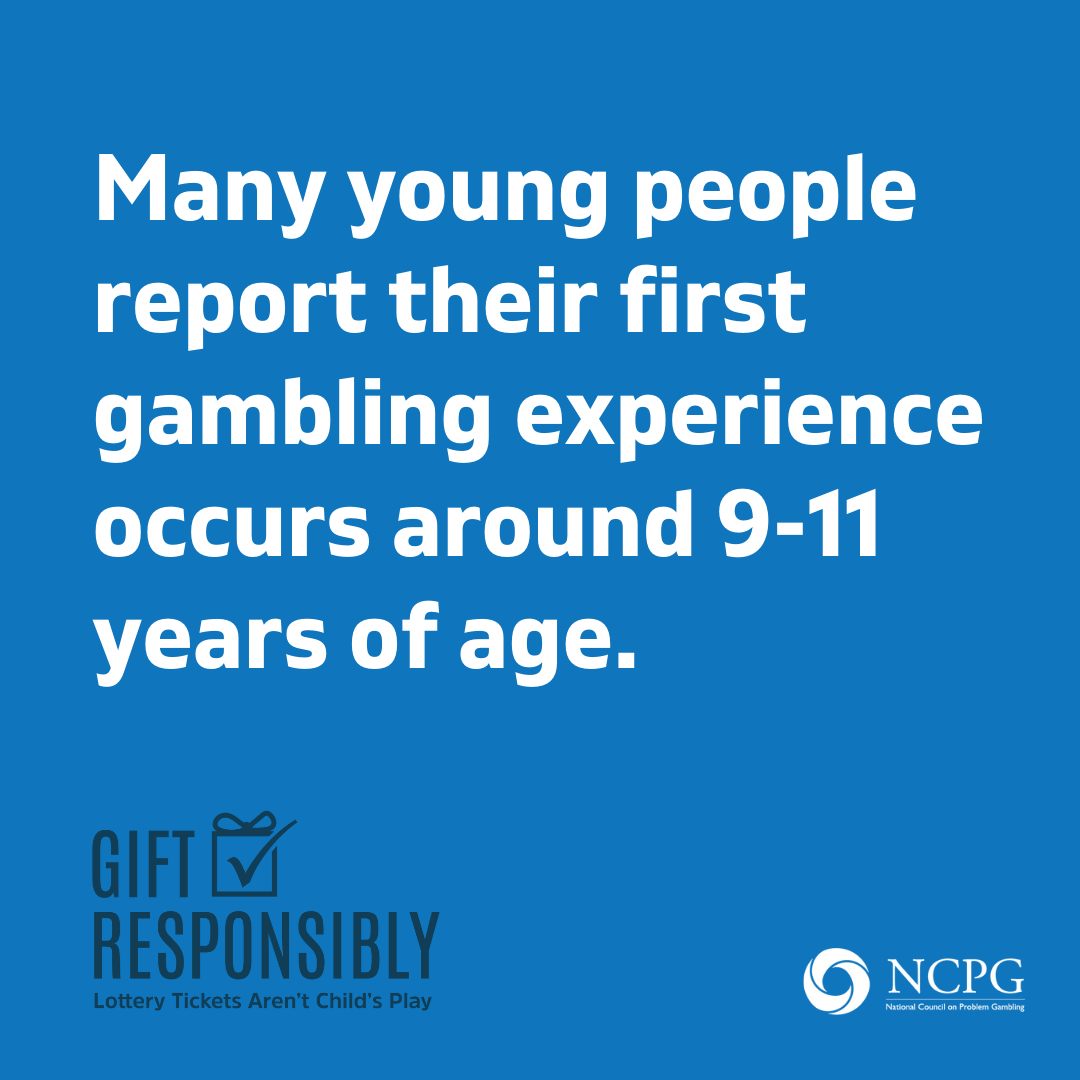
COMMON TYPES OF GAMBLING
Some of the most common types of gambling include:
- casino-style cards game (Texas Hold’em, Blackjack/21, etc.),
- other card games (Gin Rummy, Spades, Hearts, etc.),
- fantasy sports,
- dice games (Craps, etc.),
- online games (online poker, slots or other social casino games),
- sporting events (football, baseball, etc.),
- fantasy sports,
- lottery tickets or scratch cards,
- pull tabs
- raffle tickets,
- bingo,
- games of personal skill (basketball, video games, pool, bowling, skeet ball, etc.),
- mahjong, Native American stick games and other cultural games,
- esports, and
- loot boxes (found in video games).
RISK FACTORS FOR YOUTH PROBLEM GAMBLING
As with any health issue, it’s important to understand the risk factors for youth problem gambling. Here are some to be aware of in teens and young adults:
- History of gambling in the family — children of parents who gamble are nearly twice as likely to be weekly or daily gamblers.
- Family history of alcoholism or mental illness.
- Having been abused or traumatized.
- Exposure to gambling at young age.
- Having a “big win”.
- Having easy access to a preferred form of gambling.
- Having few interests or hobbies besides gambling.
- Holding mistaken beliefs about the odds of winning.
- Using gambling to escape problems or as a coping mechanism.
- Frequently experiencing boredom, depression, anxiety or feeling directionless in life.
- Wanting to win money (however, for adolescents with gambling problems, money is the vehicle, not the main reason, for gambling).
INCREASED RISKS FOR STUDENT ATHLETES
The 2018 U.S. Supreme Court decision overturning the ban on sports betting left it in the hands of each state to decide to legalize sports betting at the professional and collegiate level. This presents new risks for student athletes and perhaps to the integrity of the games they play. Athletes are competitive by nature and it is not uncommon for athletes to bet.
Consequences associated with student athlete gambling
- athletic and academic failure
- loss of scholarship/play
- crime
- relationship problems
- alcohol and substance abuse
- debt
- suicide
If you think your student athlete is having issues with gambling:
- Start the conversation and find somewhere quiet and free from distractions to talk.
- Avoid accusing or judging; focus instead on how you feel about their gambling and the concern you have for them and their future.
- Use specific examples of their changed behavior
- Be specific about the risks the student athlete is taking by gambling, which is against school athletic codes of conduct.
- Ask your student how you can be there for them (“What can I do to help you?”)
- You can offer to call a counseling service with them or accompany them to their first appointment. Minnesota Problem Gambling Helpline 1-800-333-HOPE (4673)
- If your student athlete doesn’t want help, try not to push the issue. Let them know you are there for them if they want to talk about it in the future.
BLURRING LINES OF GAMING AND GAMBLING
Technological advances in video and online gaming and the ability to play on a global level have allowed gaming participation to grow at a rapid pace in the past ten years.
Most teenagers, both girls and boys, play video games. It is a significant part of world culture and entertainment.
Parents need to be aware that game designers have begun embedding gambling elements into games and continue to market to underage customers and adults with no regulations. Like gambling, gaming is a form of entertainment for most. But for some, gaming can become addictive and can negatively impact their lives.
If you think your child may be developing an issue with gaming, check out our gaming disorder page or visit GameQuitters.
Youth Gambling
MNAPG Launches Effort to Raise Problem Gambling Awareness in Schools
MNAPG launches a free, dynamic toolkit for schools to raise awareness about the risks of online gaming and gambling among youth. READ MORE
The WAGER, Vol. 29(4) – Team sport participation and gambling involvement from adolescence to young adulthood
Study examines team sport participation and gambling involvement from adolescence to young adulthood. READ MORE
The WAGER, Vol. 28(8) – Association between other people’s gambling and the gambling behavior of Australian adolescents
Does exposure to other people’s gambling influence or put Australia’s youth at-risk? READ MORE
View or Request
Take Our Quiz
SELF-HELP PUBLICATIONS
View, download or order a hard copy below (These are meant to be supplemental guides, not a replacement for therapy)
- Your First Step to Change, 2nd Edition. A self-help toolkit of resources to help start the journey toward recovery from problem gambling behavior.
- Personal Financial Strategies for the Loved Ones of Problem Gamblers
BROCHURES
- Warning Signs of Problem Gambling (English, Spanish, Chinese, Hmong and Vietnamese)
- What Families Can Do When a Loved One has a Gambling Problem (English and Spanish)
- What is Problem Gambling? (English, Somali and Spanish)
- Gambling When in Recovery (English and Spanish)
- Gaming Disorder (English and Spanish)
- Gamban—Block Access to Your Devices (English and Spanish)
- Lower Risk Gambling Guidelines
- Older Adults and Gambling
- Talking to Your Child About Gaming
- Youth and Gambling—What Parents Need to Know
BROCHURES for professionals
- Be Part of the Solution (English and Spanish)
- Why Screen for Gambling Disorder? (English and Spanish)
Newsletter
- Northern Lights - MNAPG Quarterly Newsletter

